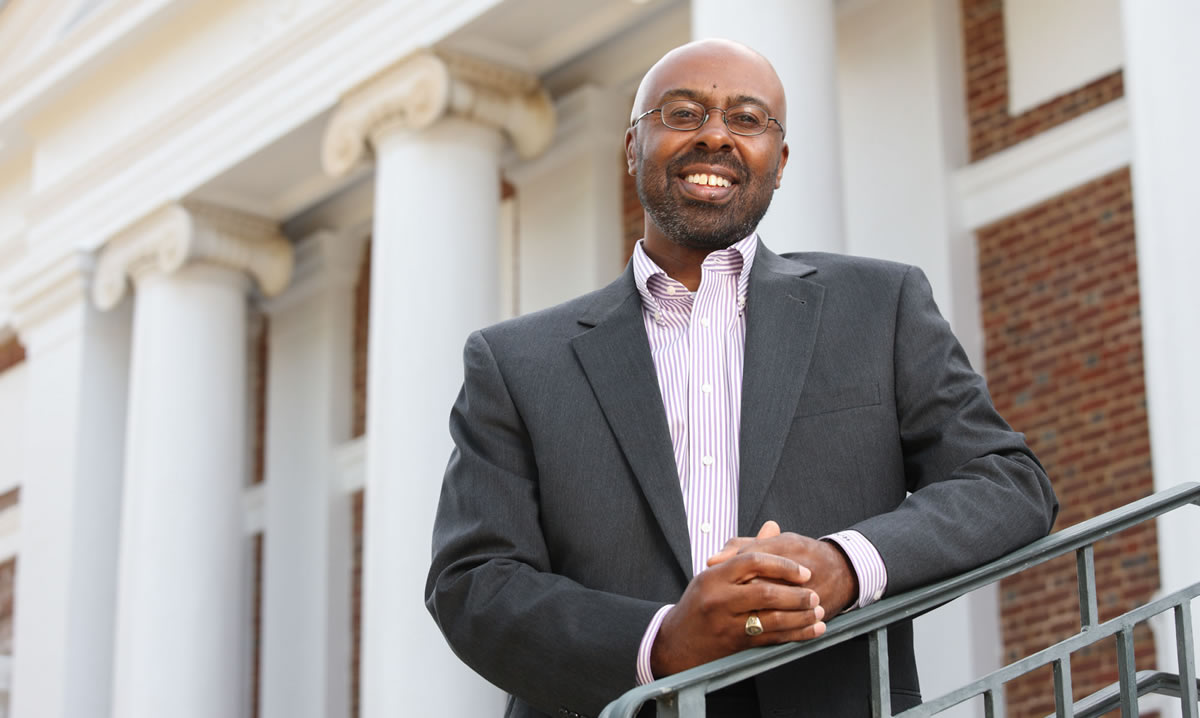Note: This post was written during the 2021-2022 academic year.
As a current student in the Marketing & Management Track of the M.S. in Commerce Program, I had the honor to interview M.S. in Commerce Program Director Ira Harris. Throughout my conversation with Professor Harris, I was able to learn the inside scoop of how the pandemic has benefited the program, the process of choosing what projects and cases are used throughout the year, and how to transition to a master’s program.
What learning elements have you incorporated into the classroom from online/hybrid teaching?
It used to be that we would not record our class sessions, and that’s something we started to do last year just because of people having to be away and come back because of illness. So now we put that into place. The other is that there are some meetings now, like the weekly town hall, that we do virtually, and we have everyone together, which is very convenient and helps to centralize the messaging to minimize confusion. We did not do that prior to being online last year. It was more often that we would get everyone together in a large room; we did not do it every week because it is quite an effort to bring everyone in. So being online means we have more frequent meetings, and it strengthens the communication between the program and the students.
How do you and the faculty choose what cases to use throughout the upcoming year? How do you pick a case for class?
We think a lot about it every year. This is not just my preference. We start by thinking about what our learning objectives are for that class session, and each class session is driven by an overall topic and a few core concepts we want to get across. As a program, and as a school, one of our priorities is to be as applied as possible; we want to bring that business theory to life. It is not enough to just talk about the concepts. We want to show how managers think about it and how it is demonstrated and applied in the corporate setting.
We have a specific reason and objective that we are trying to satisfy with that concept. Our preference is to use a more recent case than a historic one—but that’s not at the top of our list. What is on top of the list is “what business setting is the most instructive for this particular concept?” If we can bring that current, then that is fantastic, because we operate in a changing world and we certainly like to minimize factors that all of us may view as “that used to be true but may not be true.” If it turns out that we do use a case that is 10 or 15 years old, I will acknowledge that it’s an older case and review the reason why, and I will also try to form that context and help us understand the assumptions we are making. We know that there have been some updates to that industry, but we want to hold those constants when we choose a case.

Ira Harris (Photo by Tom Cogill)
Prospective students worry about successfully transitioning to graduate school. What advice would you give them?
That is an important question and a question that all students should ask themselves. There are questions that will occur to some students, and not to others. The fact is that graduate school is different from undergraduate school, and I think that this is an important starting point for students. It should also prompt students to ask themselves if the successful academic strategies and life strategies they used in the previous three to four years translate well to the new setting of graduate school. It’s important to ask right in the beginning because it puts you on alert. As you use some of those same strategies that you used previously, does it look like it’s working? Does it feel as natural? Does it feel like you are on top of your work? If the answer is no, then you should be looking for a way to adjust as quickly as possible.
I think that students who perform poorly in the first semester did not ask these questions early enough—or perhaps not at all. Our best students arrive with an open mind and ready to learn. To be clear, my mention of “best students” does not necessarily refer to students who earn the best grades. Our best students instead are the ones who have the largest impact on the education process, who learn this material deeply, and who then go on to have a terrific career of contributing to their organization.
Those students come in with a certain mindset that I view as a “prepared mind.” They are ready to thoroughly read all assigned course material, ready to absorb new information, and ready to be shaped as a business thinker. Incoming students should consciously remove any sort of rigidity and carefully examine their assumptions—whether it be business concepts or world events. Aggressively holding firm to one’s views can be very good, but can lead to missed learning opportunities during this introductory stage of grad school. In short, initial mindset is super important to developing the analytical thinking that McIntire offers.



